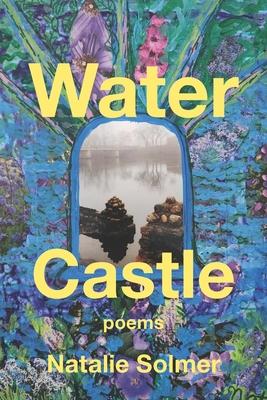-Diane Seuss, author of frank: sonnets and Modern Poetry
Water Castle is first and foremost a love story: to self, significant other, and family. Yet, Water Castle is much more-a lyrical, meditative search for the origins of self. Traveling from the Midwest to her partner's home of Montego Bay, the speaker shares pearls of truth like when she refuses to close her son's gap teeth because of "the Morgan Parker poem / about the gap in Angela Davis's teeth speaking / to the gap in James Baldwin's smile" and her son's paternal grandmother's regret of closing hers. Water Castle's speaker calls out racism from her privileged White position while also showing love and gratitude for the people who made her.
-Douglas Manuel, author of Trouble Funk and Testify
Natalie Solmer's Water Castle begins, "Consider with me, my moats"-those magical aqueous circles protecting sacred interiors. Inescapable winds and wounds of inheritance push the speaker into musings about memory, art, family, earth, motherhood. Past and present whisper their secrets: the sassing ghosts of two grandmothers, the lengthening legs of the poet's children. We are caught in the spell of this poet's cyclical, mystical wonder. But for me, the heart of Water Castle resides in the power of love "to lift for a moment / the foggy veil of this terrible / earth."
-Alessandra Lynch, author of Daylily Called It a Dangerous Moment and Pretty Tripwire
